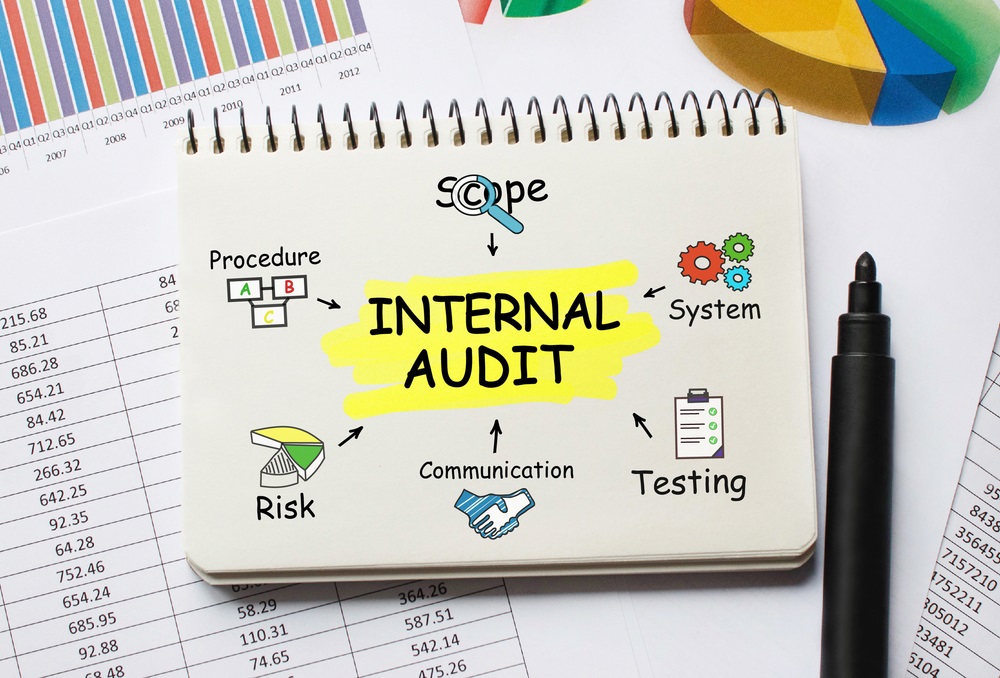To write a high-impact audit report, you need lots of practice and time with proper guidance. It must be done per the standards and in alignment with the primary objectives to effectively explain the whole audit management process. To learn how to write a good audit report, you must look for some tips and best practices.
The first step should be penning down the detailed writing format for the report. Utilizing the standard internal audit report formats provided by ISO and other organizations is always better. Brainstorm how you will present your information and what stats you will be including because overwhelming them with unnecessary facts and figures will bore them sooner. Keep the 5 C’s of internal audit report writing in mind.
You can search for audit report templates (audit report samples) to get a quick idea.
How to Write an Internal Audit Report?
Do you know the what is the best internal audit report format? For an Internal audit summary report, a standard template is usually followed to meet the core objectives and requirements that the addressee has asked for. The better the report format, the clearer the picture of the business’s financial status.
The audit report structure must have the below-mentioned sections in the same sequence but you can make slight changes such as adding follow-up section:
- Title & Cover
How to prepare internal audit report? Let’s start with a simple yet engaging cover that must leave a good impression. After all, it will be the first point of contact with the reader. A quality internal audit report cover page speaks for the auditor’s efforts. Your cover should provide the readers with the title, auditor’s name, the end date for audit, and the company’s name being audited. Don’t forget to mention “Independent Auditor’s Report” in the title as per the internal audit report structure.
- Addressee details
Addressee means the person who will be addressed in the report, a person responsible for hiring the auditors. It is usually the shareholders of the company. Their professional life, designation, duty roles, and essential employment incidents or experiences must be highlighted. It makes the internal audit report presentation more engaging.
- Introduction
One of the most important headings in an internal audit report writing format! This section must highlight the significant points to have a better understanding and give a quick overview to understand why the audit report is presented, such as:
- The area/departments being audited
- The processes being audited
- The standards followed while conducting an audit (ISO 9001, ISO 14001, etc.)
- Any historical financial information
- Any facts that readers must keep in mind while reading the report
It must be concise but legible and authentic. No false facts or unverifiable statements must be made.
- Scope & Objectives
As the heading implies, the scope and purpose of the audit must be explained thoroughly. After reading this section, the addressee must understand:
- What the audit is really about
- The reasons why the audit risk areas are of importance to the company
- Any limitations on the scope of work completed
- The members responsible for conducting the audit
- Why internal controls are tested
- How Company’s accounts are inquired about and verified
The auditor must provide credible proof that the audit examination of the company’s financial reports has been completed per the country-wide accepted standards. The evidence must be legitimate and free of material misstatements to make the shareholders or investors believe you.

- Opinions
One of the essential sections of any internal audit report is the auditors’ opinions concerning the business’s current financial status. It can be:
Unqualified or Clean Opinion: The highest grade opinion signifying that the report is generated and maintained in full compliance with the Generally Accepted Accounting Principles (GAAP) without any misstatements in financial records.
Qualified Opinion: It is issued only if the company fails to maintain financial records following GAAP. However, the report is free of misstatements or when unacceptable disclosures are provided for the financial accounts.
Adverse Opinion: Lowest-grade opinion, or the worst type of opinion given on the internal audit review report explaining that records are neither conformed to the GAAP nor free of misrepresentations. It directly puts the company in the lousy spotlight, being called a fraud.
Disclaimer of Opinion: If the company fails to prove its financial status or the auditor is unable to determine the status due to the lack of details.
- Results
Once the reason for auditing is explained, issues with their root causes are identified, flaws in financial records are highlighted, opinions are made, and the final verdict of the auditors’ team is provided. The result section summarizes the major findings supported by credible references and criticizes the performance of the management in resolving formerly acknowledged problems.
- Recommendations
It is a point where you suggest new action plans to meet the deficiencies of the financial department considering the records. The skilled auditors can only play an advisory role, making recommendations or encouraging them to take certain actions to get rid of problems, but the final decision will be taken by the management
- Conclusions
It is considered the end of the internal quality audit report format where auditors are asked to add more comments (positive or negative) that cannot be mentioned in the result section. It goes beyond the individual issues of a company’s corporate governance. You can write an internal auditor’s opinion in this section as well. Most importantly, it gives you extra space to write positive notes to appreciate the management team.
The internal audit annual report is finalized after examining the company’s internal control systems deficiencies, which have some common sections, as mentioned above.
- Terminologies:
Provide a short and easy-to-understand definition for each and every term you have used in the structure of internal audit report. It makes it easier for everyone to understand the information.
- Auditor’s signature and Place of the signature
At the end of the internal audit reporting structure, don’t forget to add the auditor’s signature on the report for credibility. The auditor must mention the city in which the report is signed.
- Date of the Internal control audit report:
Always mention the date when the auditor signed the audit report.
Create an Executive Summary
Do you really think that senior executives read every word or go through every page? Well, they don’t have enough time to do so. That’s why draft internal audit report with an executive summary highlighting key points such as important dates, procedures, factual statements, and figures.
It must summarize all data and present it to the decision-makers to determine if they need any new action plan. It must not take more than 30 minutes to read.
In literal meanings, “it is a compact debate of the conclusions of the auditing tasks completed in a complete audit report layout.”
Audit Services to Improve Operational Control
With the help of experienced, professional, and skilled accountants at Profits plus, you can handle an organization’s internal audit more efficiently. We have assurance and consultant services with risk advisory to help you reach your ultimate goal. Our team always selects the most beneficial standard policies for Dubai-based businesses while guiding them through auditing and supervising financial operations.














